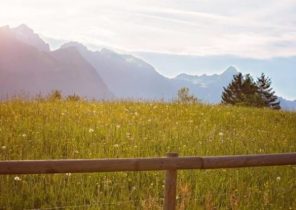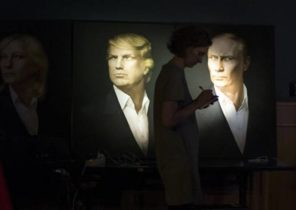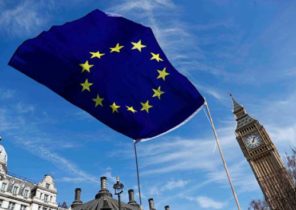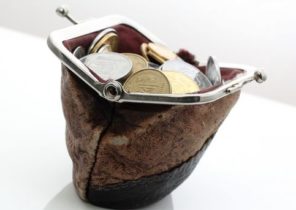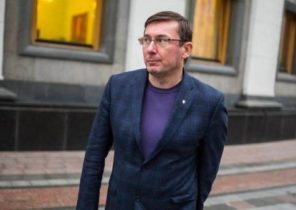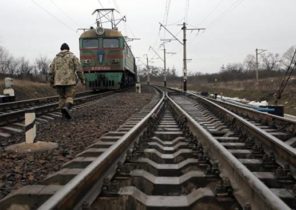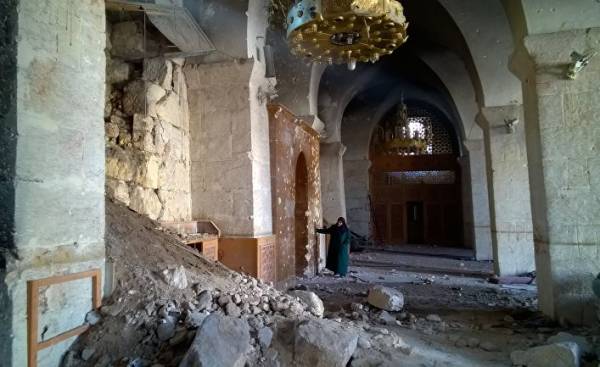
Russia is using Syria to increase its geopolitical and economic influence in the middle East, and appears keen to position himself as the main character that can take care of the security of the region — but only if it is consistent with her own interests.
On Monday, after the US shot down a Syrian fighter jet for the first time since the start of the war in Syria, the Russian defense Ministry has cut the “hot line”, which was organized to avoid accidental conflicts with the US military in close skies of Syria.
Russia is once again tightened the tone against the United States, as the government sitting in Moscow, — the strongest supporter of Syrian President Bashar al-Assad. Russia bombed Syria from the air from October 2015.
Most of the raids were aimed at the Syrian opposition that could mean that the fight against ISIS (a terrorist organization banned in Russia — approx. ed.) is not the main goal of Russia in Syria. Despite the fact that the opposition in December lost its main stronghold in Aleppo, the opposition, and not ISIS, remains the biggest threat to Assad, and therefore Russia.
Russia, it seems, wants to position itself as an essential actor that can ensure the security of the region, when it is in its own interests.
Her continued presence in Syria should remind US that Russia remains a party to the events that Americans should operate.
But Russia needs a strategy for the future. She was stuck in place, and it has no present plan to overcome the situation, according to researcher mark Galeotti (Mark Galeotti).
“Putin can not grow in a political way,” says Galeotti, who conducts research at the Prague Institute of international relations and compares methods do Russia’s methods in Chechnya.
Until recently, Russia’s role was limited to air raids, but now she intervened in the ground fighting. Went to Syria soldiers from the southern regions of the country, from among its Sunni population in Chechnya. Their specific role and the number is not clear.
Moscow announced that it wants to reduce its presence in the country, saying the Syrian people must decide their future.
Another example of activities in Russia — is the restoration of mosques. Chechen regional Fund, named in honor of the father of the leader of Chechnya, Ramzan Kadyrov, Akhmad Kadyrov, decided to Finance the construction of the ISIS destroyed the Umayyad Mosque in Aleppo. Mosque is listed in the world heritage list of UNESCO. The opening of the restored mosque is scheduled for August of 2018.
The Kadyrov Foundation was founded in 2004 to help the Chechens, but he now helps people from different regions of Russia and the world, especially Somalia and Syria. In September last year, the Fund has sent more than 2.5 thousand sheep, 100 oxen and 10 camels the citizens of Damascus, Latakia and Tartus, and gave school materials to 7 thousand Syrian children. The Foundation also plans to build houses for orphans in Aleppo.
On the background of the ongoing war the initiative aims to strengthen the image of Chechen leader Ramzan Kadyrov as a merciful giver, who wants to alleviate the suffering of the Middle East and spread their point of view on Islam.
Another mosque of Khaled Ibn al-Walid in HOMS, is also in the process of recovery, according to the agreement between Chechnya and Syria.
The desire to strengthen its influence in the middle East concerns not only policy. Economic sanctions have severely hit the Russian economy. Russia’s response was to find other partners for cooperation.
Energy diplomacy has become a significant driving force. Moscow’s attempts to expand can be seen in prisoners in the last two years of business agreements. The company “Gazprom Neft”, a subsidiary of Gazprom, for example, received the ability to extract hydrocarbons in Kurdistan. Rosneft, another Russian oil company, signed a cooperation agreement in Kurdistan and Libya and bought a share of 30% in the gas field of Zohr in Egypt. In addition, four Russian oil companies have started talks about the possibilities in Syria.
Maybe the new oil and will not find, but investments have obvious symbolic meaning — as the restoration of mosques Kadyrov.
